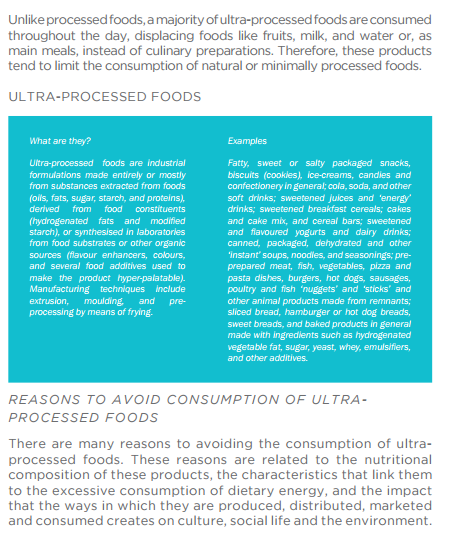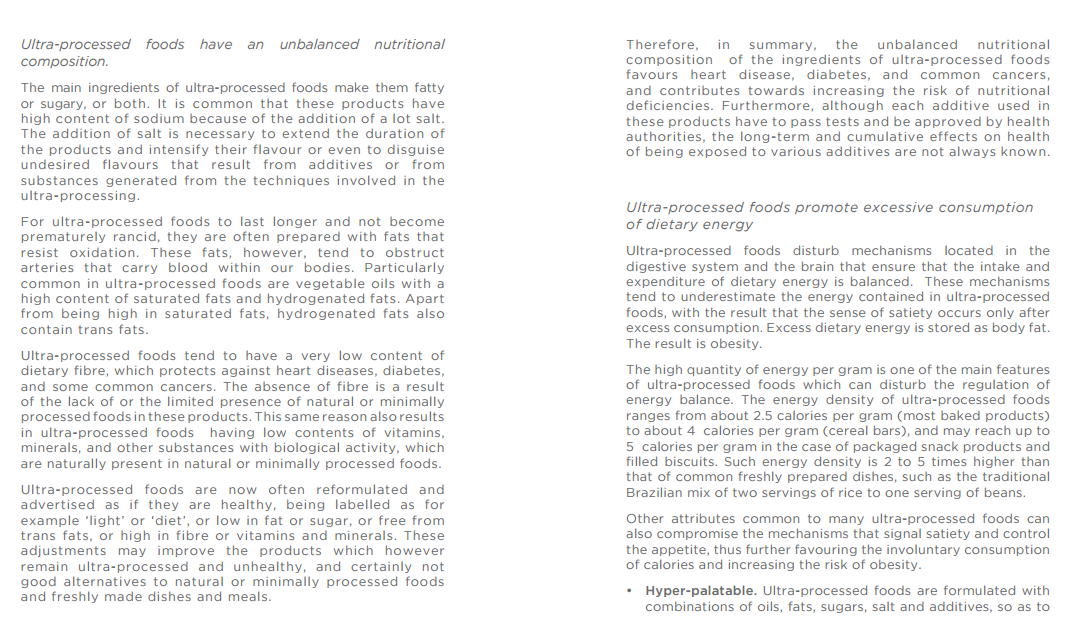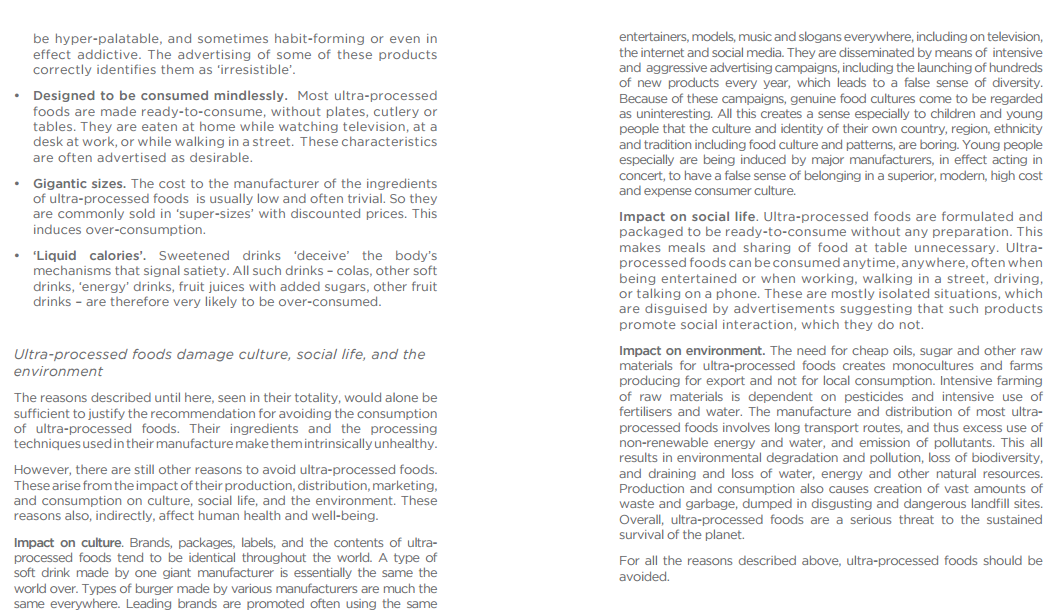"Skinny/Light" vs. "Whole"
Replies
-
KourtneyLee wrote: »If you are concerned about the scale, calories are what you should be concerned about. That is what is important for weight loss. Then figure out what you can fit into that so that you are not unduly hungry and you enjoy your food. That could be all full-fat, all 'light', or a mixture of the two. You need to figure out what works for you.
There's nothing inherently problematic about eating full fat products, other than the additional calories. But full fat often is more satiating so you don't need to eat as much. It also often tastes better so you may want to eat more than you should.
There's nothing inherently problematic about eating 'light' foods with artificial sweeteners or fat substitutes. Years' worth of studies have been done and show no negative side effects unless you happen to be sensitive to one of them. Then there are digestive issues like those who are lactose intolerant and drink regular milk, so you'll know if that's the case. Benefits of 'light' foods are that you can eat more of them. But, they might not be as satiating for you, and in that case there is no benefit.
Personally, I base my choices on taste. And the presence of xylitol and maltitol - I'm sensitive to those. I pick skim milk because I don't like drinking whole milk. I'll cook with skim as long as it doesn't affect the taste of the final product. If it does, I'll use whole. I won't eat yogurt with artificial sweeteners because every one I've tried has tasted nasty to me. On the other hand, I drink diet soda because regular doesn't taste that much better that I think 100+ cals per serving is worth it. Anyway, you get the idea.
Interesting take on only focusing on things you have a sensitivity to. However, I have to say that despite that there may be years worth of studies that don't show side effects from added chemicals and other ingredients to foods (sucralose, dyes, BHT, aspartame, soybean oil/GMO's, nitrite/trates), there are certainly years worth of studies that sway towards the opposite I've also been told by dietitians that whole, unprocessed ingredients and foods are best and best for the body to digest regardless of specific sensitivities, but I do still tend to mix both "lighter" and "whole recipes into my diet either do to convenience or to stay true to a recipe. Thanks for your take!
I've also been told by dietitians that whole, unprocessed ingredients and foods are best and best for the body to digest regardless of specific sensitivities, but I do still tend to mix both "lighter" and "whole recipes into my diet either do to convenience or to stay true to a recipe. Thanks for your take!
Well, I prefer not to spend an unpleasant hour in the bathroom, if you know what I mean. It's like any other food item. Some people digest it better than others. I also have a really nasty reaction to Dairy Queen soft serve - no idea why, and I've never met anyone else with the same problem. There's nothing wrong with the soft serve. It just doesn't agree with me.
Personally, I would question anyone telling me unequivocally that whole foods are easier to digest than processed. A fair amount of food processing happens in order to make foods more digestible. You're going to digest cooked rolled oats better than raw rolled oats, which digest better than raw steel cut oats which digest better than raw groats (least processed oat). There are lots of similar examples.
I won't go into the studies on GMO, artificial sweeteners and dyes other than to say that as a scientist myself, I was satisfied that there is no evidence of currently used artificial sweeteners having negative effects on humans when consumed in remotely reasonable amounts. But you really need to read the studies yourself with a critical mind. There's a lot of spin out there, and I'm certainly not suggesting you take my word for it.
Dyes have to be evaluated individually because they are so different, naturally occurring as well as artificial. Some are harmless. Those that have enough evidence that they may not be are eventually pulled from use.
Objection to GMO really has little to do with health (by and large GMO is beneficial for health where it is not neutral - did you know vaccines are often GMO?) and more to do with biodiversity and economics (hello Monsanto) which is really down to individual views of such things.0 -
^^^ @stealthq I am in a similar boat to you regarding the unpleasant reactions to soft serve ice creams over here in Aus.
One of my treats used to be a cone from McDonalds, not anymore after vomiting the last one.....One interesting titbit I did learn from an employee there was that depending on the supply on the day the 'ice cream' can be made using a gelatinous type of 'food' so the ice cream keeps it's texture and shape.....on other days it is made with milk et al.
He was pretty vague on the specifics and what the chemical substitute was but boy it did NOT agree with me ....so may little treat is now off the radar as I don't want the "fallout". 0
....so may little treat is now off the radar as I don't want the "fallout". 0 -
I usually use full fat versions of things. I once tried lean ground beef -- neveragain!
Skinnytaste has some good recipes. In fact, tonight's dinner is based off one of those recipes that I've adapted0 -
abetterluke wrote: »lynn_glenmont wrote: »irishdancer214 wrote: »For me, I much prefer a diet of whole foods...yes I know that artificial sweeteners etc SEEM to cause no problems, who really knows. I've seen some scary research about sucralose, etc and rather than risk it I'd just prefer to avoid it. I used to be all about the 100 calories packages of stuff, reduced fat everything...but after a few years I got sick of "being on a diet" forever. I've noticed that when I spend my days eating foods with artificial sweeteners, foods that are highly processed, etc, I start feeling really tired and sluggish and my fitness goals are harder to reach. When I started moving my diet to whole foods that were very minimally processed (much easier said than done) I began feeling soooo much better and had more energy. So I would apply this to my cooking...but it is fully up to you!!!

I still fail to see how low fat milk or yogurt is 'highly processed', as opposed to full fat. It's really not a huge difference...
^^This. After all, if you milk a cow, you would have to stir (or shake, if you put the milk in a jar or bottle) the liquid/emulsion every so often to be able to maintain it as "whole milk" as opposed to reduced fat or low fat milk with cream floating on the top. Unless you drank it immediately. And the full milking from one cow is a lot of milk for one person to drink at one time.
Technically grocery store "Whole Milk" is 3.25% milk fat i believe as opposed to 2%/1%/skim. I always assumed that the cream top was basically where whipping cream came from.
I didn't mention grocery store milk, did I? I said if you milk a cow and then drink the milk.
Historically, "whole milk" is milk with all the cream, as it came out of the cow. The standardization of 3.25% milk fat is a regulatory minimum set by the FDA. Different breeds of cows have different levels of fat in their milk, so if you want consumers to be able to compare different products on price and use them in recipes, and depend on them for nutritional needs, a standard is helpful. The fat in modern dairy breeds generally exceeds 3.25%, so if you're buying it in the grocery, the producer probably had to mix lower fat milk with whole milk to meet the standard but not exceed it by much, because you can sell cream for more than milk so you don't want to give the consumer more cream (fat) than you have to.
When unhomogenized milk used to be delivered to your doorstep (or right into your kitchen, in trusting times) in bottles, you would find a cream "top" or "cap" when you opened the bottles. If that's what you mean by whipping cream coming from the cream top, the cream top seems thicker than whipping cream to me--i.e., you'd need to mix a bit of milk back in to get whipping cream, which is still a liquid (before you whip it). It's more solid than liquid--probably wouldn't take much effort at all to get butter out of it.0 -
KourtneyLee wrote: »If you are concerned about the scale, calories are what you should be concerned about. That is what is important for weight loss. Then figure out what you can fit into that so that you are not unduly hungry and you enjoy your food. That could be all full-fat, all 'light', or a mixture of the two. You need to figure out what works for you.
There's nothing inherently problematic about eating full fat products, other than the additional calories. But full fat often is more satiating so you don't need to eat as much. It also often tastes better so you may want to eat more than you should.
There's nothing inherently problematic about eating 'light' foods with artificial sweeteners or fat substitutes. Years' worth of studies have been done and show no negative side effects unless you happen to be sensitive to one of them. Then there are digestive issues like those who are lactose intolerant and drink regular milk, so you'll know if that's the case. Benefits of 'light' foods are that you can eat more of them. But, they might not be as satiating for you, and in that case there is no benefit.
Personally, I base my choices on taste. And the presence of xylitol and maltitol - I'm sensitive to those. I pick skim milk because I don't like drinking whole milk. I'll cook with skim as long as it doesn't affect the taste of the final product. If it does, I'll use whole. I won't eat yogurt with artificial sweeteners because every one I've tried has tasted nasty to me. On the other hand, I drink diet soda because regular doesn't taste that much better that I think 100+ cals per serving is worth it. Anyway, you get the idea.
Interesting take on only focusing on things you have a sensitivity to. However, I have to say that despite that there may be years worth of studies that don't show side effects from added chemicals and other ingredients to foods (sucralose, dyes, BHT, aspartame, soybean oil/GMO's, nitrite/trates), there are certainly years worth of studies that sway towards the opposite I've also been told by dietitians that whole, unprocessed ingredients and foods are best and best for the body to digest regardless of specific sensitivities, but I do still tend to mix both "lighter" and "whole recipes into my diet either do to convenience or to stay true to a recipe. Thanks for your take!
I've also been told by dietitians that whole, unprocessed ingredients and foods are best and best for the body to digest regardless of specific sensitivities, but I do still tend to mix both "lighter" and "whole recipes into my diet either do to convenience or to stay true to a recipe. Thanks for your take!
Well, I prefer not to spend an unpleasant hour in the bathroom, if you know what I mean. It's like any other food item. Some people digest it better than others. I also have a really nasty reaction to Dairy Queen soft serve - no idea why, and I've never met anyone else with the same problem. There's nothing wrong with the soft serve. It just doesn't agree with me.
Personally, I would question anyone telling me unequivocally that whole foods are easier to digest than processed. A fair amount of food processing happens in order to make foods more digestible. You're going to digest cooked rolled oats better than raw rolled oats, which digest better than raw steel cut oats which digest better than raw groats (least processed oat). There are lots of similar examples.
I won't go into the studies on GMO, artificial sweeteners and dyes other than to say that as a scientist myself, I was satisfied that there is no evidence of currently used artificial sweeteners having negative effects on humans when consumed in remotely reasonable amounts. But you really need to read the studies yourself with a critical mind. There's a lot of spin out there, and I'm certainly not suggesting you take my word for it.
Dyes have to be evaluated individually because they are so different, naturally occurring as well as artificial. Some are harmless. Those that have enough evidence that they may not be are eventually pulled from use.
Objection to GMO really has little to do with health (by and large GMO is beneficial for health where it is not neutral - did you know vaccines are often GMO?) and more to do with biodiversity and economics (hello Monsanto) which is really down to individual views of such things.
I've had a very unpleasant reaction to soft serve from Rita's, lol.0 -
I eat the full fat products most of the time. Fats are nourishing and yummy, so long as you're eating them from healthy sources like pastured meat/dairy and nuts and seeds and the like. When they take out the fat, they take out the flavor along with it, so manufacturers usually add a whole bunch of thickeners and starches and addatives that are horrible for you and taste nasty. I'd rather avoid all that. The only things that I usually buy lowfat are yogurt (since it's hard to find whole milk yogurt, and the lowfat doesn't have addatives anyway,) and my flax milk (since I can't drink regular milk).
As far as calories go, I usually just eat a little less of a finished recipie. Most of the time, I find that the reccomended "serving sizes" are huge. Seriously, I usually get 8-9 servings off of a meal that's supossed to serve 4-5. Plus, you can usually cut back on the oil that recipies call for. You usually only need 2-3t tsp of oil in recipies when they call for 2 tbsp.0 -
Both bacon and cheese are processed according to the Brazilian definition, but not ultra-processed. That would be reserved for the Pillsbury dough boy.
"The ingredients and methods used in the manufacture of processed foods – such as vegetables in brine, fruits in syrup, cheeses and breads – unfavourably alter the nutritional composition of the foods from which they are derived. In small amounts, processed foods can be used as ingredients in dishes and meals based on natural or minimally processed foods." - Food Based Dietary Guidelines - Brazil
Bacon is both brined and smoked.
Yes, for the definition of the type of processed foods many programs suggest to avoid, let's go with the Brazilian definition of Ultra Processed:


0 -
Bacon can't really be generalized about. There are a huge variety of different bacon options. I'd think a majority of bacon in a mainstream grocery would count as ultra processed, likely, due to what's added. But cured pork belly is not inherently that -- although it is processed, of course.
Here's a little rant from Loren Cordain: http://thepaleodiet.com/bacon-anything-left-to-discuss/0 -
I eat full fat of anything I eat. One of my absolute favorite things to eat is twice baked cauliflower. SOOOOO delicious! It has sour cream, cream cheese, parmesan cheese, cheddar cheese AND bacon in it. I just make sure I watch my portion size (or, have the calories for more if I'm going to take more than one serving). It doesn't seem to have negatively affected me so far - I'm down just a touch under 38 pounds.
This sounds so delicious - thanks for the idea!0 -
lemurcat12 wrote: »KourtneyLee wrote: »I'm just wondering what kinds of recipes and things you all have been having more success with between the two.
I don't usually follow recipes. I read recipe blogs (haven't checked out SkinnyTaste, but I should) and (more often) cookbooks for ideas, and then I just improvise based on what I have and feel like eating. I'm a pretty simple cook most of the time, so I really can't even think of when I'd use lower cal or fat ingredients. You mean things like boneless, skinless chicken breasts or lean ground beef? I will use those (although I'm constrained because I get my meat from a farm, so often don't have the leanest cuts, and I like bone-in, skin-on chicken better more often than not). I do usually use lower fat dairy unless it would compromise the food, and I might sub 0% greek yogurt for sour cream, but I don't use dairy in cooking all that much (but for cheese and butter) -- I mostly eat it on the side with breakfast or the like.
I don't use reduced fat fats, as that makes no sense to me -- I use butter or olive oil or the like and merely try to use less than I might have once upon a time. I don't use reduced fat cheese (well, I might use part skim ricotta) but I will use naturally lower cal/fat cheeses, like feta vs. blue cheese if I think the taste would work. (I really like feta and it's strong tasting so you can use a little with a lot of effect.) I use plenty of higher cal ingredients like olives and pine nuts when I have the calories, though. Otherwise, I tend to increase portions of vegetables and decrease portions of starch somewhat and save some calories that way.
Love the idea of using Greek Yogurt to substitute sour cream - I actually end up buying 0% rather than full fat Greek yogurt, but when I buy sour cream I will buy the full fat version rather than "light". This is where my inconsistencies lie! I guess I will always be a mix between the two 0
0 -
PrizePopple wrote: »I personally use a mix to help me reach my goals. I focus mostly on staying within calories and so will eat "low fat" versions of somethings to get there. Others, I make fit into my goal. One of the major ones is that I eat low fat greek yogurt; it's just too hard for me to personally get the full fat version to fit and still allow room for other treats.
That said, I go for full fat ice cream.
This. I have 2% milk, fat free Greek yogurt, light swiss cheese slices (because it was on sale), and then Kerrygold butter, gelato, and a sharp cheddar block. When I realize I've not been hitting my fat macros well enough I'll switch over to whole milk and grab a container of full fat Greek yogurt to boost it back up (but to be honest, I eat so much Greek yogurt I get the stuff at Costco because 2 tubs is the price of 1 whole milk one).
I too buy fat-free yogurt and low fat milk (skim-2%), but will never buy reduced fat cheeses or light sour creams etc. I suppose I will always be one to mix the two and continue buying a mix of "light" products in addition to plain and whole. I don't tend to personally watch my calories as much as macros - I think at this point I've got a good handle on cals, and will opt for fuller fats to meet them if I am under my fat macro as you do!0
This discussion has been closed.
Categories
- All Categories
- 1.4M Health, Wellness and Goals
- 398.4K Introduce Yourself
- 44.7K Getting Started
- 261K Health and Weight Loss
- 176.4K Food and Nutrition
- 47.7K Recipes
- 233K Fitness and Exercise
- 462 Sleep, Mindfulness and Overall Wellness
- 6.5K Goal: Maintaining Weight
- 8.7K Goal: Gaining Weight and Body Building
- 153.5K Motivation and Support
- 8.4K Challenges
- 1.4K Debate Club
- 96.5K Chit-Chat
- 2.6K Fun and Games
- 4.7K MyFitnessPal Information
- 17 News and Announcements
- 21 MyFitnessPal Academy
- 1.5K Feature Suggestions and Ideas
- 3.2K MyFitnessPal Tech Support Questions








